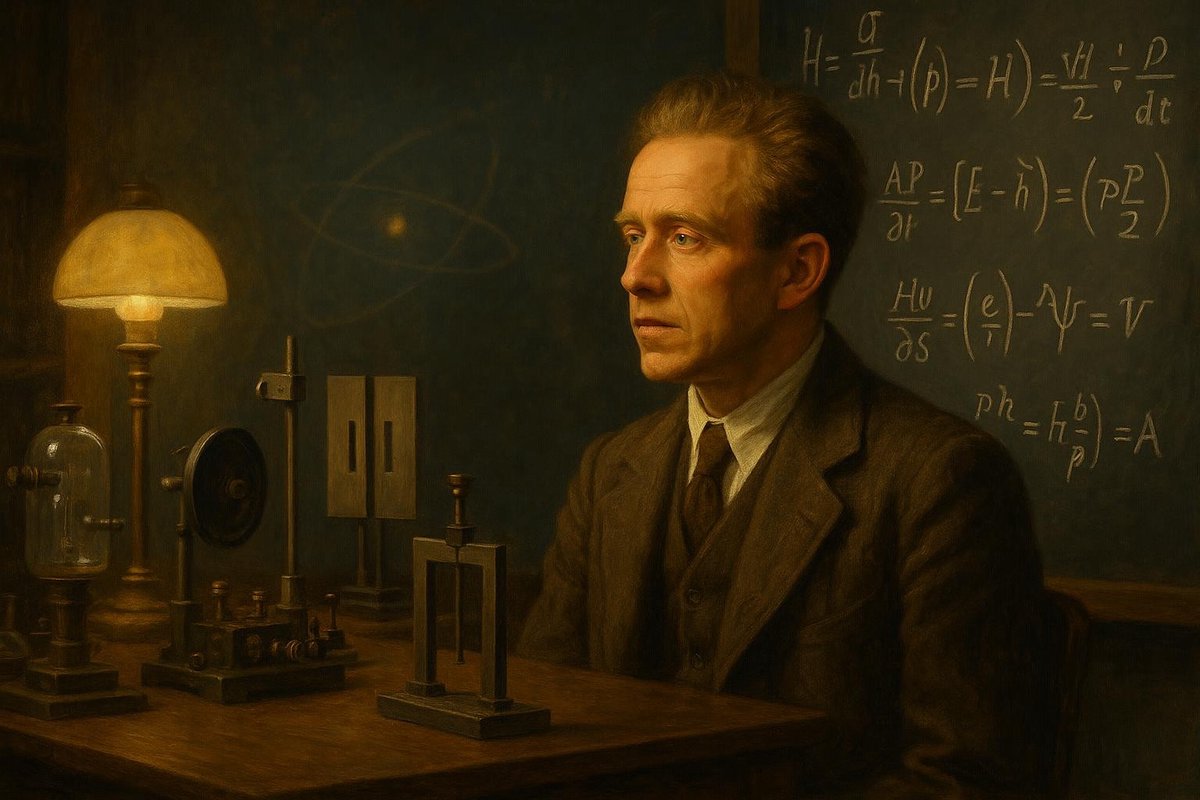
The Paradox of Certainty in an Uncertain World
Imagine standing at the edge of a forest at dusk, the trees silhouetted against a sky painted with the last hues of the day. You see movement, a fleeting shadow, but cannot discern its source. This scene mirrors a fundamental principle in quantum mechanics: the Uncertainty Principle. Interestingly, this principle challenges our very notion of precision, suggesting that at a quantum level, certain pairs of physical properties, like position and momentum, cannot both be known to arbitrary precision. This isn’t just a scientific conundrum; it’s a reflection of the inherent limitations in our quest for knowledge.
Theoretical Breakthrough: Heisenberg’s Revolutionary Insight
In 1927, Werner Heisenberg proposed an idea that would ripple through both science and philosophy: the Uncertainty Principle. Before this, classical physics, dominated by Newtonian mechanics, suggested a deterministic universe. Heisenberg shattered this illusion. The principle implies that the very act of measuring one aspect of a particle alters another aspect, introducing a fundamental limit to precision. Of course, this didn’t arise in a vacuum. It was a culmination of efforts by scientists like Planck and Einstein, who began unraveling the mysteries of the subatomic world.
- Analogy: Consider trying to measure the dimensions of a soap bubble with a caliper. The moment you touch it, the bubble’s shape changes.
- Thought Experiment: Imagine if observing a painting changed its colors. How do we then perceive reality?
Heisenberg’s insight was not just a mathematical proposition; it was a philosophical awakening—an acknowledgment of the limits of human perception and the intricate dance between observer and observed.
Supporting Evidence: A Tapestry of Quantum Experiments
Heisenberg’s principle was initially met with skepticism. Yet, as time passed, experiments began to support this groundbreaking idea. The famous double-slit experiment, for instance, revealed how particles like electrons behave differently when observed, exhibiting either wave-like or particle-like characteristics. Such experiments underscore the principle’s validity and its implications for our understanding of reality.
- Real-world Effect: The principle impacts technologies we rely on, such as MRI machines, by defining the limits of resolution and precision.
- Historical Context: The early 20th century was a fertile ground for revolutionary ideas, spurred by technological advancements and the aftermath of world wars, which paved the way for questioning existing paradigms.
Through these experiments, the realm of quantum mechanics became a proving ground for the principle, intertwining empirical evidence with philosophical inquiry.
Modern Relevance: Bridging Science and Philosophy
Today, the Uncertainty Principle remains a bridge between quantum mechanics and philosophical inquiry. It invites us to ponder not just the nature of reality, but the nature of our curiosity and quest for meaning. Many people believe that this principle suggests a universe not just to be understood, but to be experienced in all its uncertainty.
- Intellectual Style: Heisenberg, much like a poet of physics, embraced uncertainty, using it not as a constraint but as a canvas for exploration.
- Philosophical Implications: The principle aligns with existentialist thought, questioning the limits of human knowledge and the complexity of truth.
As we delve deeper into the quantum world, we are reminded of the mysteries that lie beyond certainty, urging us to cherish both questions and answers in our pursuit of understanding.
In conclusion, the Uncertainty Principle is a testament to the dynamic interplay between science and philosophy. It invites us to reflect on the boundaries of knowledge and our place within the cosmos. Perhaps, in embracing uncertainty, we find a deeper connection to the universe and our own humanity.
Fuel Someone Else’s Curiosity
If this exploration sparked your interest, consider sharing it with others. Discussing these ideas keeps curiosity alive and encourages a shared journey towards understanding the profound mysteries of our world. Join the conversation and help illuminate the path for others on this endless quest for knowledge and meaning.

Leave a Reply